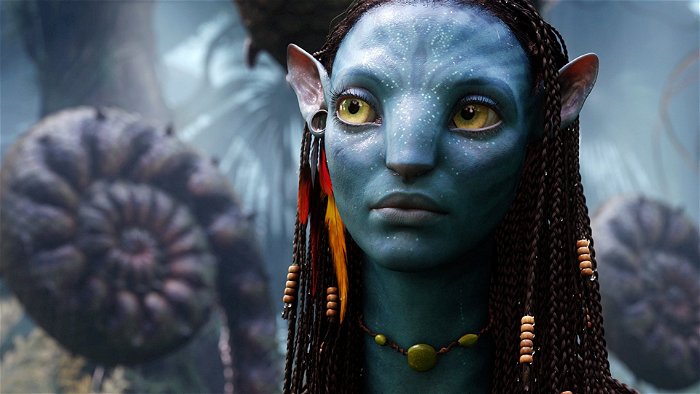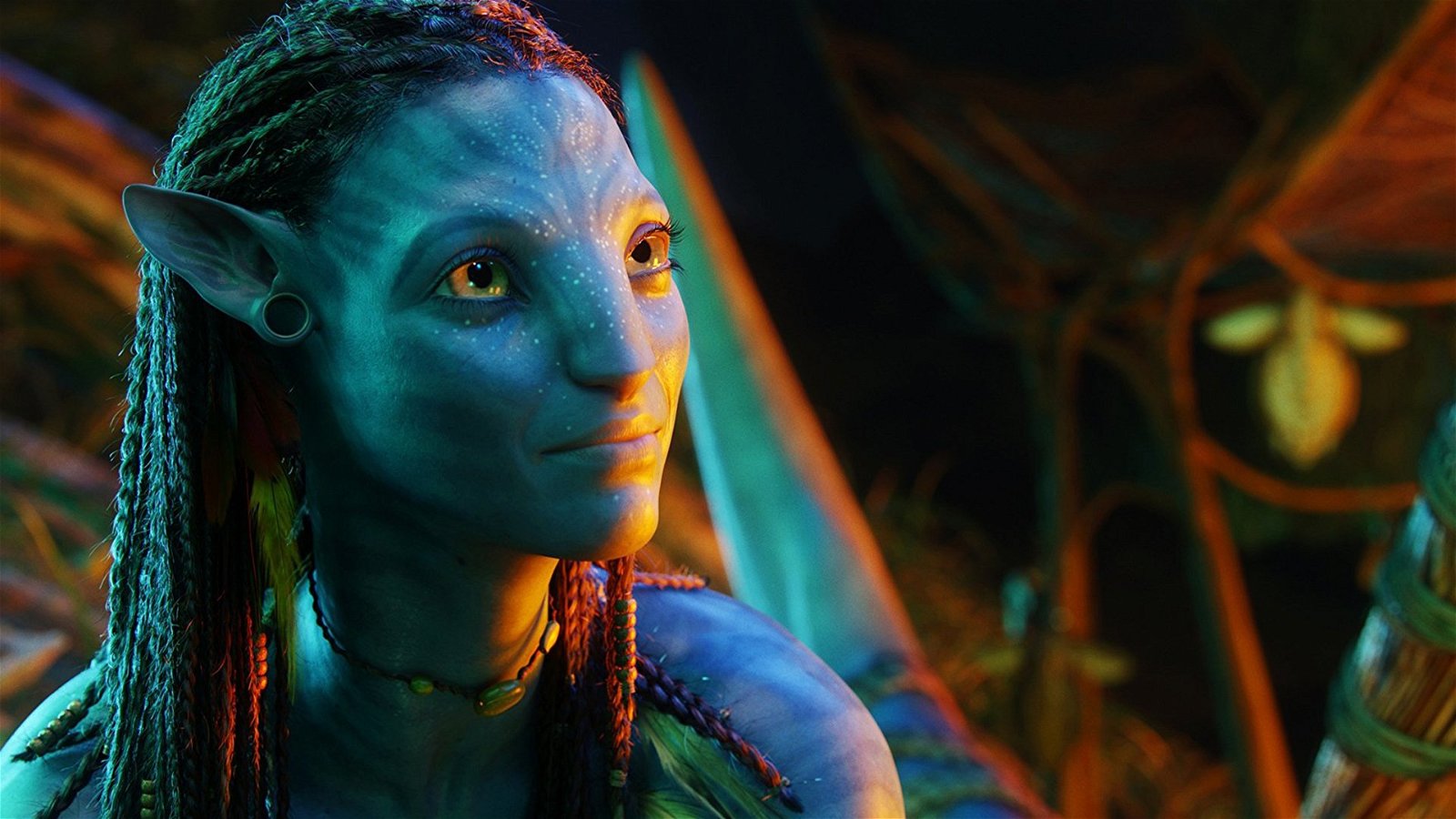Whether you like it or not, Avatar is still the highest grossing movie ever made and James Cameron is making four sequels. These are facts. There’s almost $3 billion worth of proof for the former and an endless stream of interviews and announcements proving the latter. Sure, Avatar has become a pop culture punchline since it wowed audiences so much that a few sad souls committed suicide because they couldn’t live on Pandora. But the flick now has real estate in Disney World and Cameron is deep into prep on his four-movie follow up. It’s easy to be cynical about what’s coming. Lord knows I decry these productions almost weekly on CGM’s podcast. However, there’s also no denying that James Cameron has created two of the greatest sequels ever made in Aliens and Terminator 2. Before he exclusively trafficked the most expensive (since T2) and successful blockbusters (Since Titanic) of all time, he was actually a rather clever writer who delivered ingenious sci-fi concepts within his explosive spectacles. Maybe he has a master plan for Avatar that’ll blow us all away. I’ve obviously got no info or insight into what that might be, but I like to play pretend. So stick with me.
There’s no denying that Avatar made significant advances in motion capture, CGI reality, and 3D filmmaking that are still being copied eight 8 years later (well, admittedly that third one is slowly dying, but still!). It was an exquisitely crafted production designed to appease a global audience and did exactly that through a mixture of ground-breaking technique and basic (to the point of pandering) storytelling. Cameron did have a message to impart as well. Sure, it was essentially Fern Gully in space. Yet, warning of humanity’s continued pollution/destruction of the planet, psychotic obsession with military imperialism, the collective desire to escape our bodies to live in others through fantasy, and the need to embrace the beauty of nature were all relevant and even important themes to discuss when Cameron started production in the mid-2000s (not to mention his continued advocacy for badass women action heroes).
Sure, Cameron communicated those themes clumsily, yet also with such simplicity and accessibility that they came across loud and clear through all language and cultural barriers. It’s easy to smugly dismiss the obviousness of his ideas and writing (I mean “unobtanium”?! I feel gross just reading that word). Yet they were still relevant and resonated with audiences. Perhaps Cameron has more to say. There’s certainly plenty of opportunity to expand on those ideas and others nestled within Avatar’s direct fairy-tale storytelling. And if he’s stretching his direct-to-the-point-of-obvious writing approach over four films, there’s even room for secret complexity.
So, what could these Avatar sequels be about? Maybe they could be about the effect Avatar has had on dumbing down mass entertainment for the easily hypnotised masses. We never actually see earth in Avatar, but we get the impression that it’s an exaggerated version of our own world that’s over-polluted, overpopulated, war-torn, and bleak. In the extended version of the film there is a brief prologue on earth that opens another theme: humanity’s over-stimulation. Cameron’s vision of earth is one of constant advertisements competing for attention with wall-sized TV screens to sedate even the most impoverished citizen. It’s a world of humans hypnotized by screens. You know, like us… Especially Avatar fanatics.
Now bear with me because this is where my concept goes off the rails. Earth has to be a big part of the Avatar sequels and Cameron has even said as much. What if that was a clue? What if the story of Avatar was turned into a blockbuster film in that fictional universe (a blockbuster biopic, if you will)? One that drove those screen-obsessed drones wild and made them depressed because they couldn’t live on Pandora. What if that leads to an increased military obsession to return to Pandora and claim it for humanity? That’s not impossible. The tale would quickly turn into legend on that version of Earth. In fact, if the same corporations that strove to destroy the Na’vi also funded the film (you know, like how massive corporations run the Hollywood studios now) and changed the facts so that the Na’vi were vicious creatures that destroyed humanity’s desperate hope to save itself by fighting off America’s noble attempt at interstellar colonization? Suddenly things get interesting. The movie could be a commentary on the clash of art and commerce within blockbuster-ruled Hollywood and audiences’ reliance on increasingly childish forms of franchise entertainment to escape their dreary reality. The film could comment on itself while still being the same type of massive crowd-pleasing entertainment that the studios hope for.
Beyond that, there’s now a reason to return to Pandora. The manipulated drones demand it. More than that, they’ve all decided that they now want to live on Pandora rather than simply mine it for unobtanium (ugh, I hate even typing that word). It parallels the idiotic theory many folks have now that Mars needs to be explored as a new home for humans since earth will inevitably die. Climate change and theoretical interstellar colonization have only become more prevalent since Avatar’s release. That would actually suit the story and this cultural moment.
Avatar also touched on themes of colonization, identity, and bigotry in ways that are ripe for expansion and would feel even more relevant in an era in which identity politics have become mainstream. Humans could easily start to appropriate Na’vi culture (as well as their bodies through Avatar technology) and since Avatar ended with Sam Worthington’s character permanently living within his Na’vi avatar, that raises questions about whether or not he’s really Na’vi or just pretending (or appropriating). That could spark identity-driven friction within the Na’vi tribe before the interstellar battle with humans even kicks off. That’s fairly complex sci-fi stuff, yet all very easy to grasp and relatable within the current cultural setting. Sure Avatar offered a simple story, but it does open up so many themes that are even more relevant today than when that blockbuster broke records. There’s actually some intriguing ground to cover that would still build towards a massive effects and spectacle war that fits the popcorn-shilling requirements of blockbuster cinema.
Of course, whether or not Cameron and his team intend to touch on these sorts of ideas remains a mystery. Whatever he has planned is apparently so complex that he needs no less than four movies to tell the story. There is a chance that he’s cooking up something brilliant alongside what will undoubtedly be the most ambitious and visually impressive special effects achievement ever seen (Cameron is nothing if not a technical pioneer and just like Avatar, he’s waited years for effects technology to advance so that he can build on it and invent equipment and techniques for his sequels. Rumour has it that glasses-free 3D is part of the plan. But who knows?). It’s entirely possible. People forget how brilliant and forward thinking the time travel concepts behind The Terminator or the feminist allegory in Aliens were for their time. Now they seem standard because of all the rip-offs and Cameron’s hammer-to-the-head writing style. There’s always a chance that he wants to blow minds as well as eyeballs again.

Deep down inside, I doubt it. Yet whenever I consider the possibilities of what could be done with Avatar’s world and the phenomenon it spawned in 2009, I can’t help but have hope. Of course, it’ll be years before anyone actually knows what James is cooking. For now, I’m trying to mix optimism with cynicism whenever I hear Cameron’s latest insane proclamation about the billion-dollar four-part production that he’s working on. It’s easy to mock James Cameron, yet there’s no denying his talent and ambition. Maybe he’ll surprise us all. It would certainly be a pleasant surprise; if only because it’s amazing how few people are actually excited about the upcoming sequels for what is allegedly the most popular blockbuster ever made.








